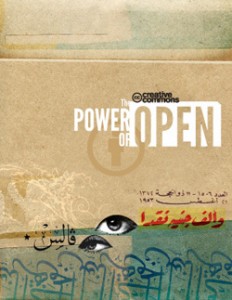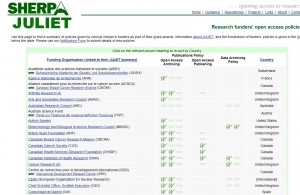 Emma Crowley and David Ball, Student and Academic Services, discuss open access publishing, and the role of the institutional repository BURO, and launch a short staff survey on open access publishing…
Emma Crowley and David Ball, Student and Academic Services, discuss open access publishing, and the role of the institutional repository BURO, and launch a short staff survey on open access publishing…
- What do you understand by Open Access?
- Do you deposit your research outputs in BURO, BU’s online repository?
- Who owns the copyright to your research papers?
- Would you consider publishing in an Open Access Journal?
At BU these are exciting times for research and one of the key ways of ensuring that your work has impact is to make it available Open Access. Most of you will be familiar with BURO, our online research repository, and are hopefully contributing your research outputs on a regular basis as per BU’s Academic Publications Policy. As a strategic part of your personal research processes it is essential that you retain your own pre-print (pre peer review) and post-print (post peer review) copies of your journal articles as most publishers will allow you to make either of these formats available open access, but not the branded publisher PDF. You can check copyright permissions in BURO using the Sherpa Romeo tool.
So, how do we know how impactful our research really is? The answer to this challenging question, discussed at length at this week’s Developing and Assessing Impact for the REF Conference, is not necessarily here, but clearly research that is being viewed and downloaded by large numbers of global web users has a greater chance of influencing policy and attracting more citations. Below are the 3 most downloaded full text journal articles in BURO during the last quarter. You can even see which search terms people are using to find your work.
Buhalis, D. and Law, R., 2008. Progress in information technology and tourism management: 20 years on and 10 years after the Internet – The state of eTourism research. Tourism Management, 29 (4), pp. 609-623. 517 Downloads
Edwards, J. and Hartwell, H., 2006. Hospital food service: a comparative analysis of systems and introducing the ‘Steamplicity’ concept. Journal of Human Nutrition and Dietetics, 19 (6), pp. 421-430. 506 Downloads
van Teijlingen, E. and Hundley, V., 2001. The Importance of Pilot Studies. Social Research Update (35), pp. 1-4. 405 Downloads
In addition to BURO BU recently launched its own Open Access Publication Fund that will support BU academics in publishing their research in Open Access journals, where a fee is required to publish, but everyone can view your article.
We would be very grateful if you could participate in a short survey, the results of which will help inform BU strategy on Open Access and wider developments for Open Access in UK HE. There is only one page of questions which will take you less than 10 minutes to complete. The survey will remain open until Monday 30th June.
Please note: if you experience any technical difficulties using the survey please contact Learning Technology
 Then come to our free Open Access event this Wednesday in the EBC!
Then come to our free Open Access event this Wednesday in the EBC!
 A new book ‘
A new book ‘













 Conversation article: London Marathon – how visually impaired people run
Conversation article: London Marathon – how visually impaired people run Horizon Europe News – December 2023
Horizon Europe News – December 2023